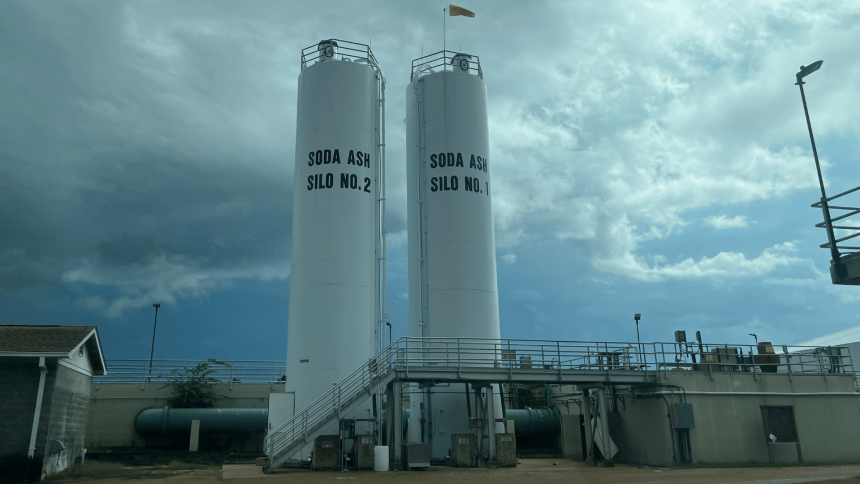It’s been a little under one year since Jackson’s water treatment plants experienced numerous failures, leaving thousands of residents throughout the capital city with little to no drinkable water.
Since then, several improvements have been made to the overall water system — including a decline in boil water notices, increased water pressure, and more consistent billing — after Jacobs was contracted to operate the J.H. Fewell and O.B. Curtis water treatment plants and water system tanks, wells, and booster stations in late February.

“To address long-term water system compliance issues, JXN Water and Jacobs are working to implement improvements that will allow the system to achieve the Mississippi State Department of Health-approved Water Quality Parameters,” Dr. Russell Ford, Jacobs Global Solutions Director for Drinking Water and Reuse, said. “Jacobs and JXN Water are committed to bringing the Jackson water system into regulatory compliance under the Safe Drinking Water Act.”
Since then, Jackson Water has retained operations and maintenance of the water distribution system, the piping, and components that carry potable water from the treatment plants to consumers.
In addition to onboarding existing staff and providing ongoing training and development, Jacobs is developing standard operating procedures and implementing critical systems and processes, a maintenance management system, and a laboratory/compliance program.
Other changes Jacobs has made to Jackson’s water system include:
- Restored Water Treatment capacity to the O.B. Curtis Plant through membrane repairs – The membrane plant initially produced 10 Million Gallons per Day (MGD). The membrane plant now has an average finished water production of more than 20 MGD stabilizing the O.B. Curtis Plant to allow for completion of other critical repairs in the plant.
- Improved water treatability – Jacobs provided a solution to clear the main sediment basin drain line by working with a local, onsite construction contractor. This clear line now allows for regular and efficient draining and cleaning of the three O.B. Curtis sedimentation basins, a key part of the water production process. This cost-effective solution eliminated a long-term, temporary pump previously required to clear the basins.
- Increased capacity and improved production stabilization – Working with the local onsite construction contractor and a local engineering firm, Jacobs oversaw the completion of ongoing repairs to Filter #24 at the J. H. Fewell water treatment plant returning the filter to service. This repair provides an additional 2 MGD of filtration capacity, stabilizing the plant operations and allowing for filter maintenance while maintaining plant water production.
- Hired 47 operators, mechanics, technicians, and support personnel to address understaffing – When Jacobs arrived onsite, the plants were not adequately staffed to operate and maintain the water treatment system. Jacobs hired 47 individuals, including licensed operators, and brought their pay and benefits up to industry benchmarks.
- Engaged industry experts to conduct a Desktop Corrosion Control Study – Coordinating with industry experts, Jacobs is assessing corrosion control practices across the water treatment and distribution system. Improvement recommendations arising from this study will be coordinated with the Mississippi State Department of Health (MSDH) and the Environmental Protection Agency (EPA) for approval prior to implementation.
For over five years, Jackson’s water system has received the “Failure to Meet Water Quality Parameters” violation from the MSDH, as well as the “Failure to Install Corrosion Control Treatment” since 2020.
Both violations are expected to remain in place until MSDH-approved treatment improvements are put in place at both water treatment plants and the associated Water Quality Parameters can reliably be met.
At this time, Jackson’s water system has been issued two violations that are associated with Corrosion Control Treatment for the EPA’s Lead & Copper Rule.







